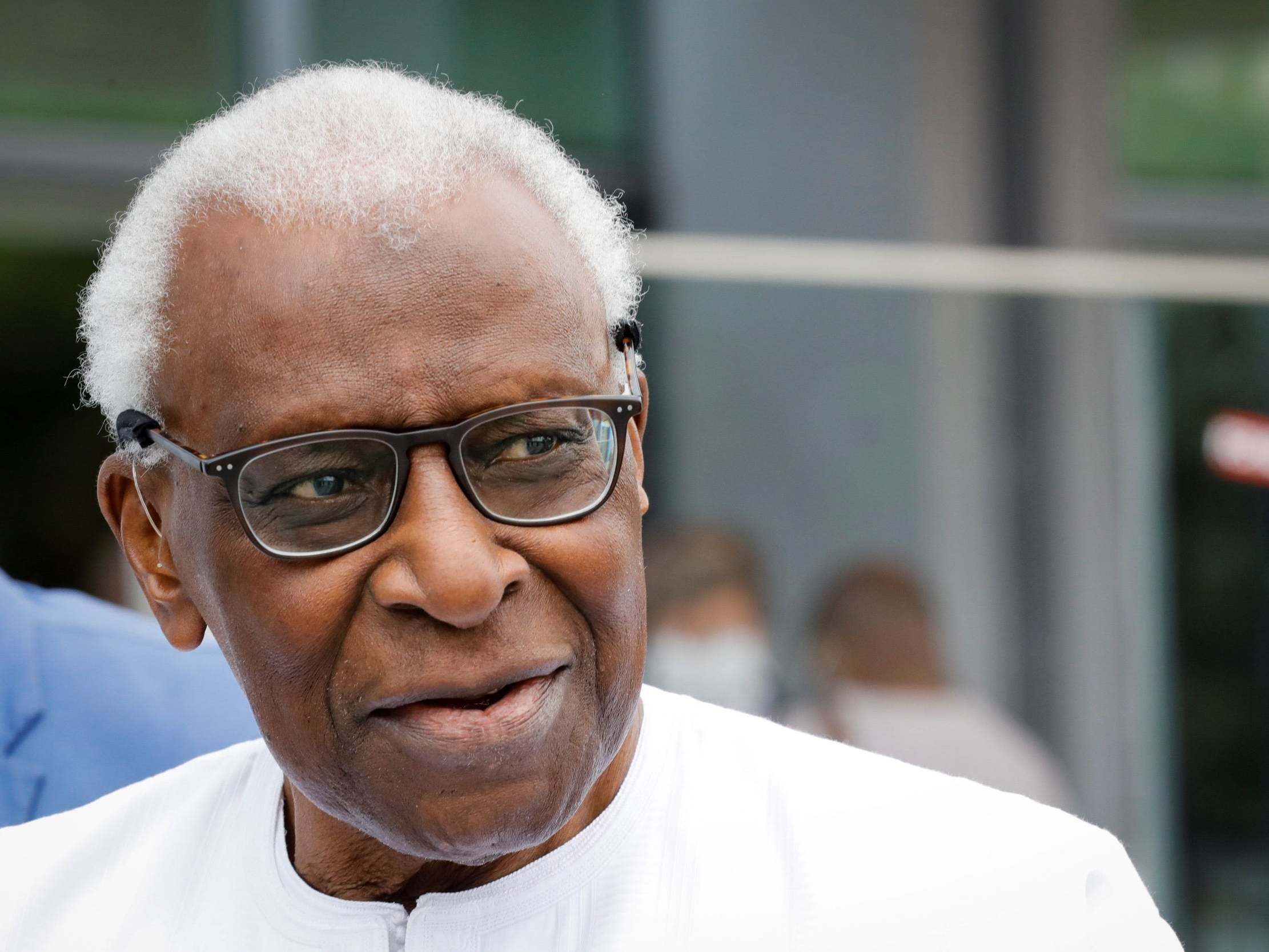Lamine Diack defends interference with Russian doping cases while IAAF president
Diack, once one of the most influential men in athletics, faces charges of corruption, money laundering and breach of trust

Your support helps us to tell the story
From reproductive rights to climate change to Big Tech, The Independent is on the ground when the story is developing. Whether it's investigating the financials of Elon Musk's pro-Trump PAC or producing our latest documentary, 'The A Word', which shines a light on the American women fighting for reproductive rights, we know how important it is to parse out the facts from the messaging.
At such a critical moment in US history, we need reporters on the ground. Your donation allows us to keep sending journalists to speak to both sides of the story.
The Independent is trusted by Americans across the entire political spectrum. And unlike many other quality news outlets, we choose not to lock Americans out of our reporting and analysis with paywalls. We believe quality journalism should be available to everyone, paid for by those who can afford it.
Your support makes all the difference.Lamine Diack, the former head of World Athletics, on Thursday told a French court he had slowed the handling of Russian doping cases between 2011-2013 to save a sponsorship deal with a Russian bank.
Diack, 87, said he had not sought to protect the athletes caught up in the scandal, some of whom later competed in the London 2012 Olympics, but to ensure the cases did not come to public attention all at once. This, he said, would have caused a scandal.
Diack, once one of the most influential men in athletics, faces charges of corruption, money laundering and breach of trust. The charges carry a maximum sentence of 10 years in jail.
The former long-jumper has consistently denied wrongdoing.
“Who took the decision to spread out the (sanction procedures)? It was me,” Diack told the court’s three judges. “Everyone said I was taking a risk, but it didn’t stop us from quietly working on doping. When the Russian cases arose, we were going through a difficult moment financially. My duty was to make sure the IAAF got out of it.”
Prosecutors allege Diack solicited bribes totalling €3.45m (£3.2m) from athletes suspected of doping to cover up test results and let them continue competing.
They also say Diack obtained $1.5m (£1.2m) of Russian funds while negotiating sponsorship and television rights to help finance Macky Sall’s campaign for the 2012 Senegal presidential election, in exchange for slowing anti-doping procedures.
Diack told the court the Russian bank renewed its sponsorship contract worth $32m (£25m) in February, 2013.
Earlier this week, Habib Cisse, Diack’s former lawyer at the IAAF, renamed as World Athletics, told the court the IAAF could have survived financially without its Russian sponsors.
Reuters
Join our commenting forum
Join thought-provoking conversations, follow other Independent readers and see their replies
Comments